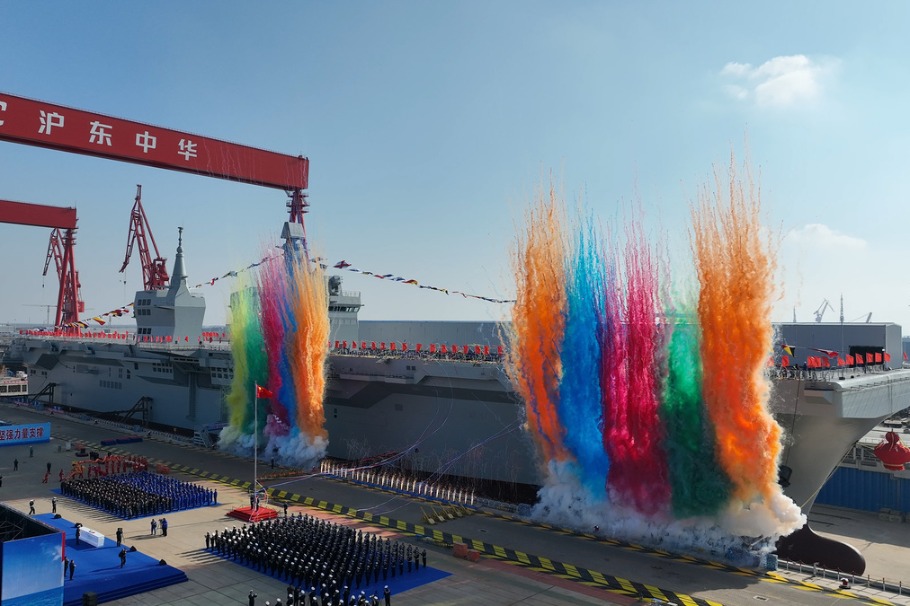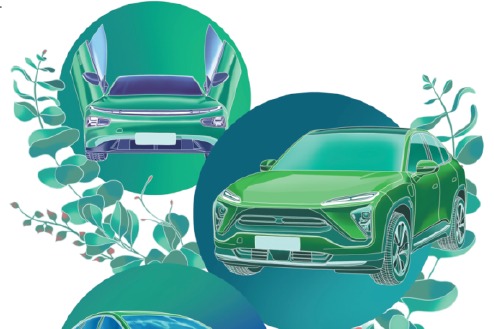Von der Leyen's toxic speech against China aims to divide the world


In a Tuesday tweet mourning former Soviet leader Mikhail Gorbachev, European Commission President Ursula von der Leyen praised him for playing a crucial role in ending the Cold War and bringing down the "Iron Curtain".
But what von der Leyen said in her speech at the Bled Strategic Forum in Slovenia on Monday showed that she's bent on triggering a new Cold War and building a wall to bifurcate the world, something that United Nations Secretary-General Antonio Guterres has warned against repeatedly.
It was a slanderous speech against China, full of lies and aimed at distracting attention from the serious problems plaguing the European Union member states, including skyrocketing energy prices, high inflation, a looming recession and growing fatigue over the prolonged Russia-Ukraine conflict.
Von der Leyen said: "At the beginning of this year, Russia and China have openly declared a so-called unlimited friendship. And only weeks later, Russia launched its war against Ukraine … The message could not be more explicit."
What she implied is that China has supported Russia's "special military operation" in Ukraine from the beginning. Which is a blatant lie. For long China has had good relations with both Russia and Ukraine. And that's why it has been stressing that a country's sovereignty be respected and negotiations conducted to end the conflict.
Some 150 countries, which refused to join the EU and the United States in sanctioning Russia, have said very much the same thing. While fighting climate change requires global solidarity, von der Leyen disagrees with this fact. She tried to undermine the global fight against climate change and derail the green revolution by fear-mongering about China which provides 10 of the 30 critical raw materials needed to produce lithium batteries.
She said: "So we have to avoid falling into the same dependency as with oil and gas. We should not replace old dependencies with new ones. So we must make sure that access to these commodities will not be used to blackmail us."
China is by far the largest investor in and producer of renewable energy in the world, and the largest trading partner of more than 120 countries. If China uses trade as a tool to blackmail other countries, as von der Leyen seems to imply, many countries would have stopped trading with it by now.
Also, China depends on the EU for many high-tech goods, yet Chinese leaders have never fear-mongered about the EU, or alleged that the bloc blackmails China, despite the fact that the EU policy under von der Leyen has been often hijacked by Washington.
Von der Leyen's emphasis on building new ties with reliable, like-minded partners around the world is a euphemism for a new Cold War and aimed at dividing the world into different ideological blocs. It's one of the most vicious anti-China speeches by von der Leyen since becoming the European Commission president in 2019.
She ended her speech on Monday by spreading more lies-that China sets debt traps for other countries through low-standard infrastructure projects and finance-despite experts such as Deborah Brautigam of Johns Hopkins University School of Advanced International Studies, a top scholar in the field, refuting such claims.
Besides, von der Leyen claimed the EU will devise a better way to execute infrastructure projects in other economies. But she is yet to show a road, a bridge or a railway built by the EU in Africa, Asia or Latin America.
In fact, less than 600 kilometers southeast of the venue where she delivered the speech on Monday, Croatia's Peljesac Bridge, built by a Chinese company, opened to traffic in July on time despite the huge challenges posed by the COVID-19 pandemic. The high-quality work has won praise from the Croatian people and leaders.
While waging her smear campaign against China and spreading disinformation to fool the people in the EU, von der Leyen will never mention solid facts such as the Peljesac Bridge, or many other bridges, roads and railways that have been built by China in Africa, Asia and Latin America and praised by the local people.
The author is chief of China Daily EU Bureau based in Brussels.


































